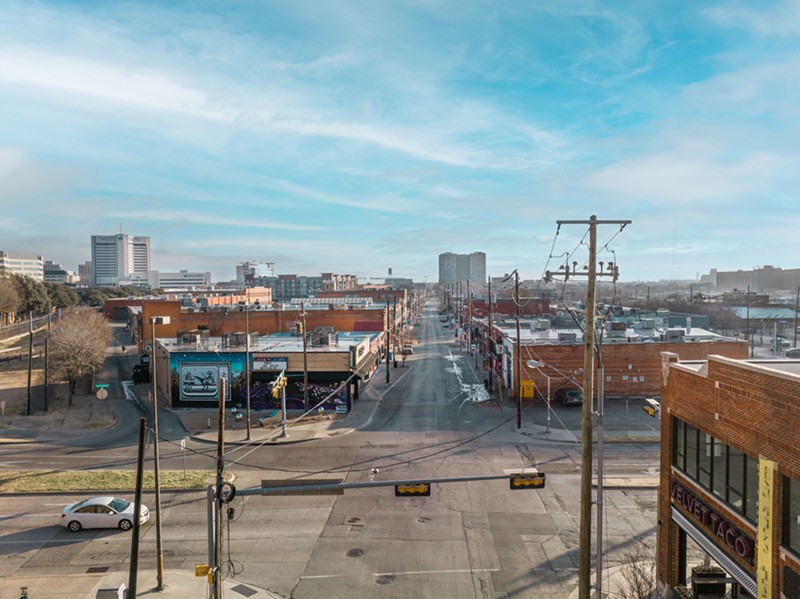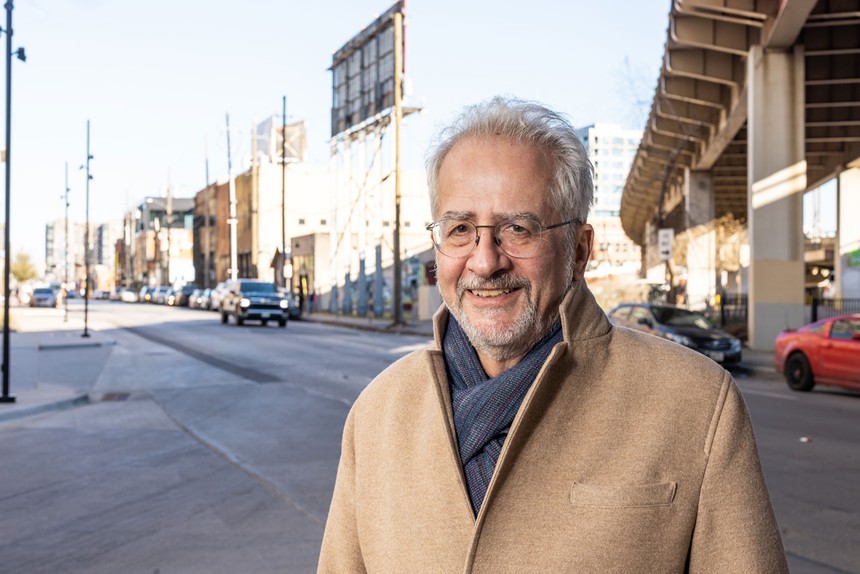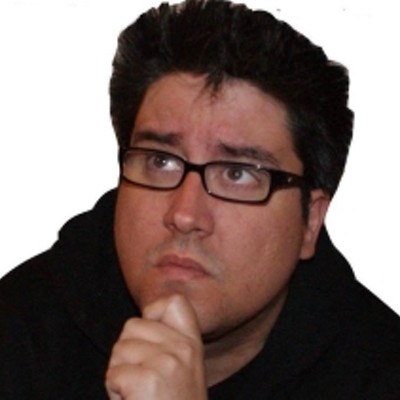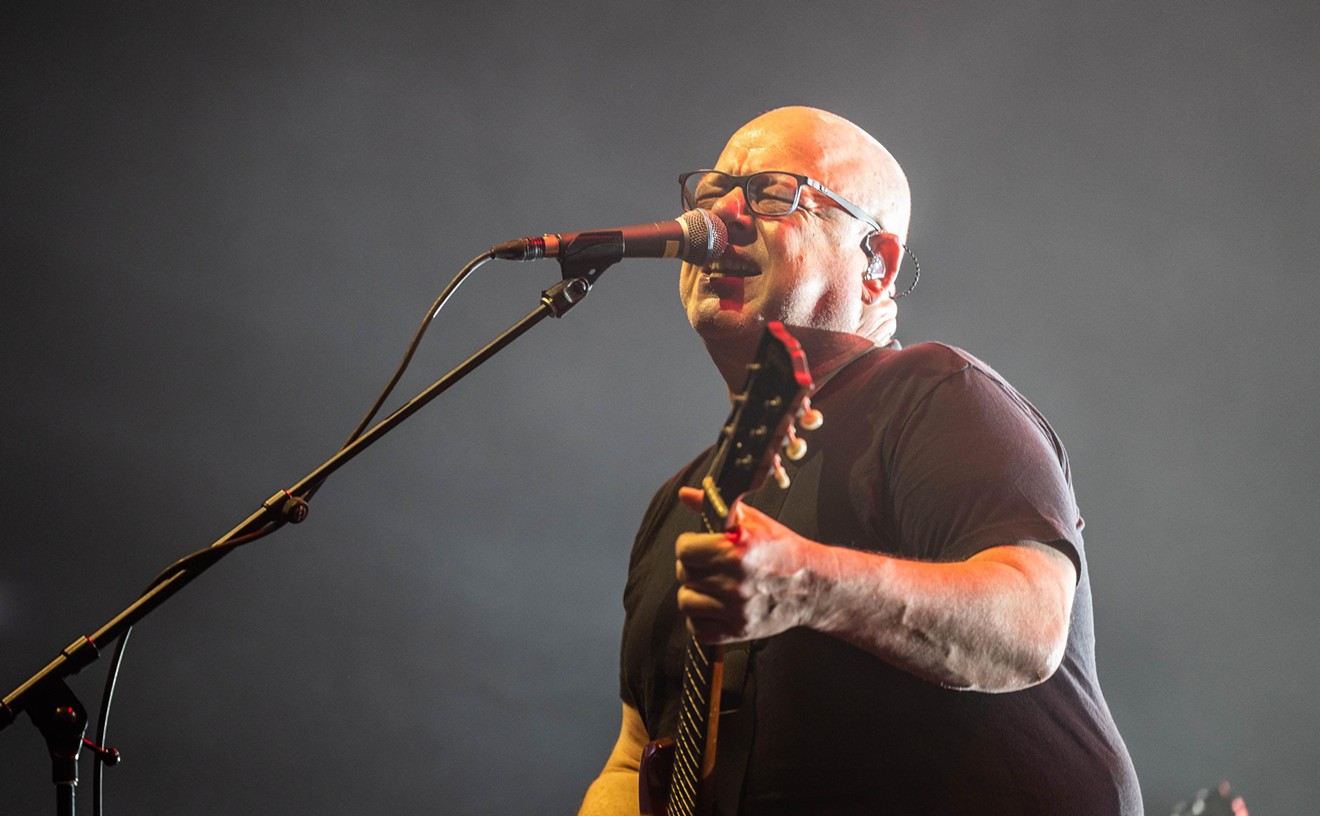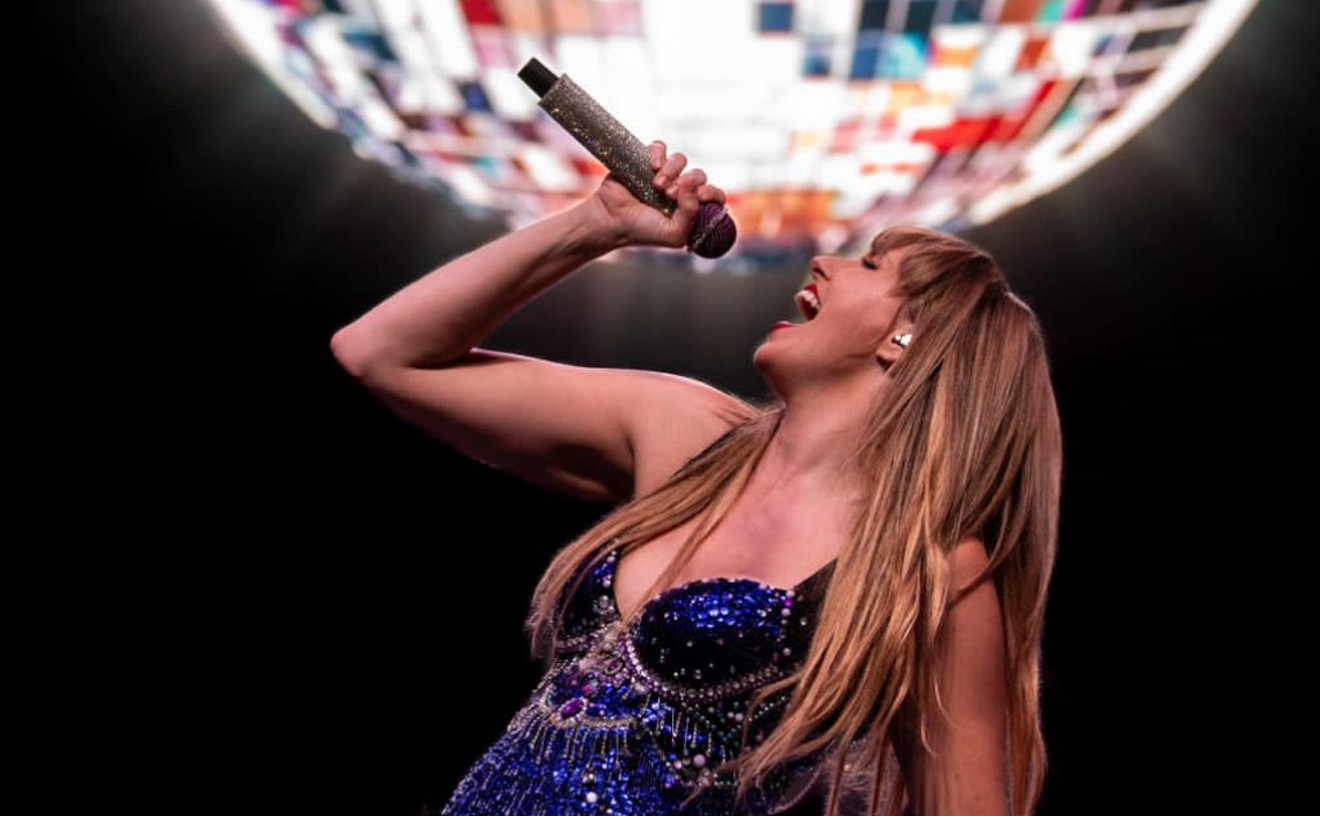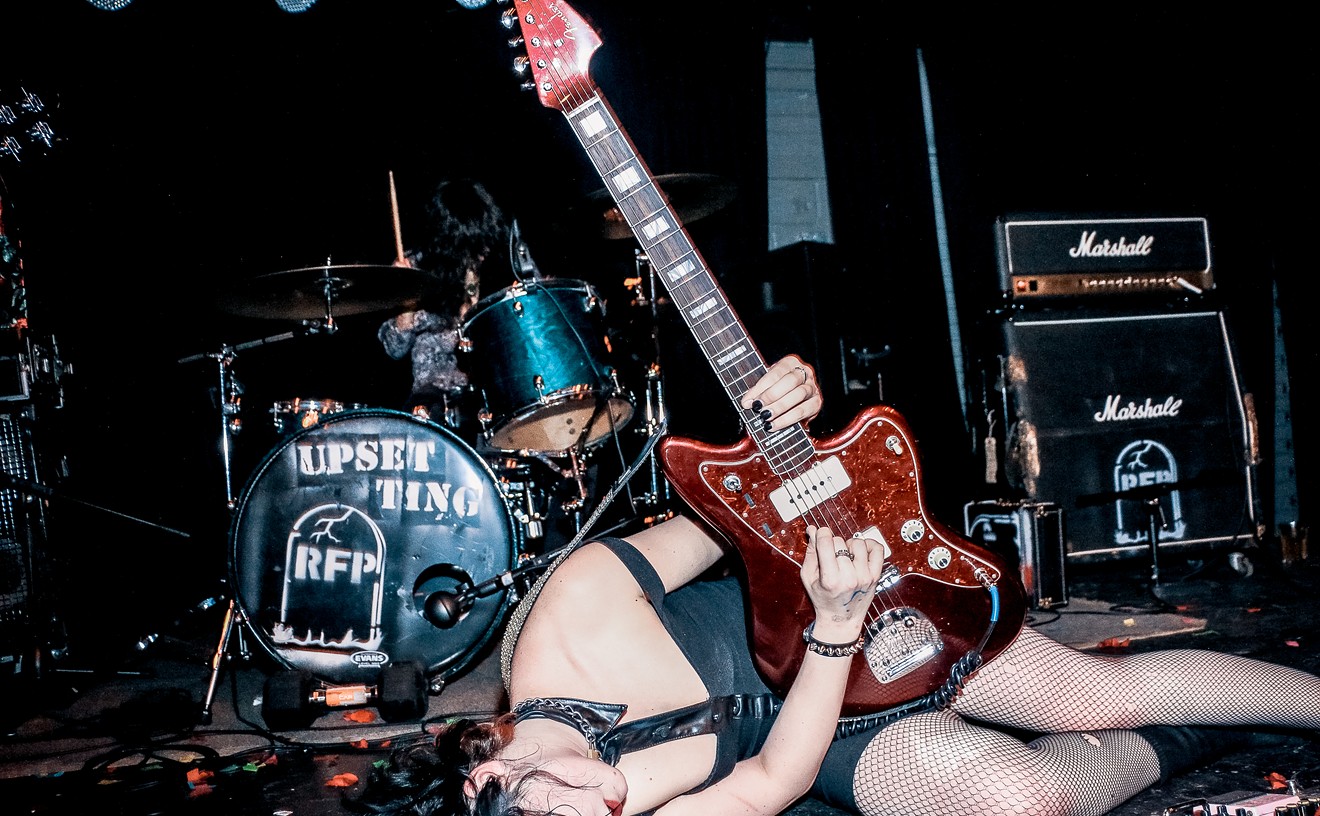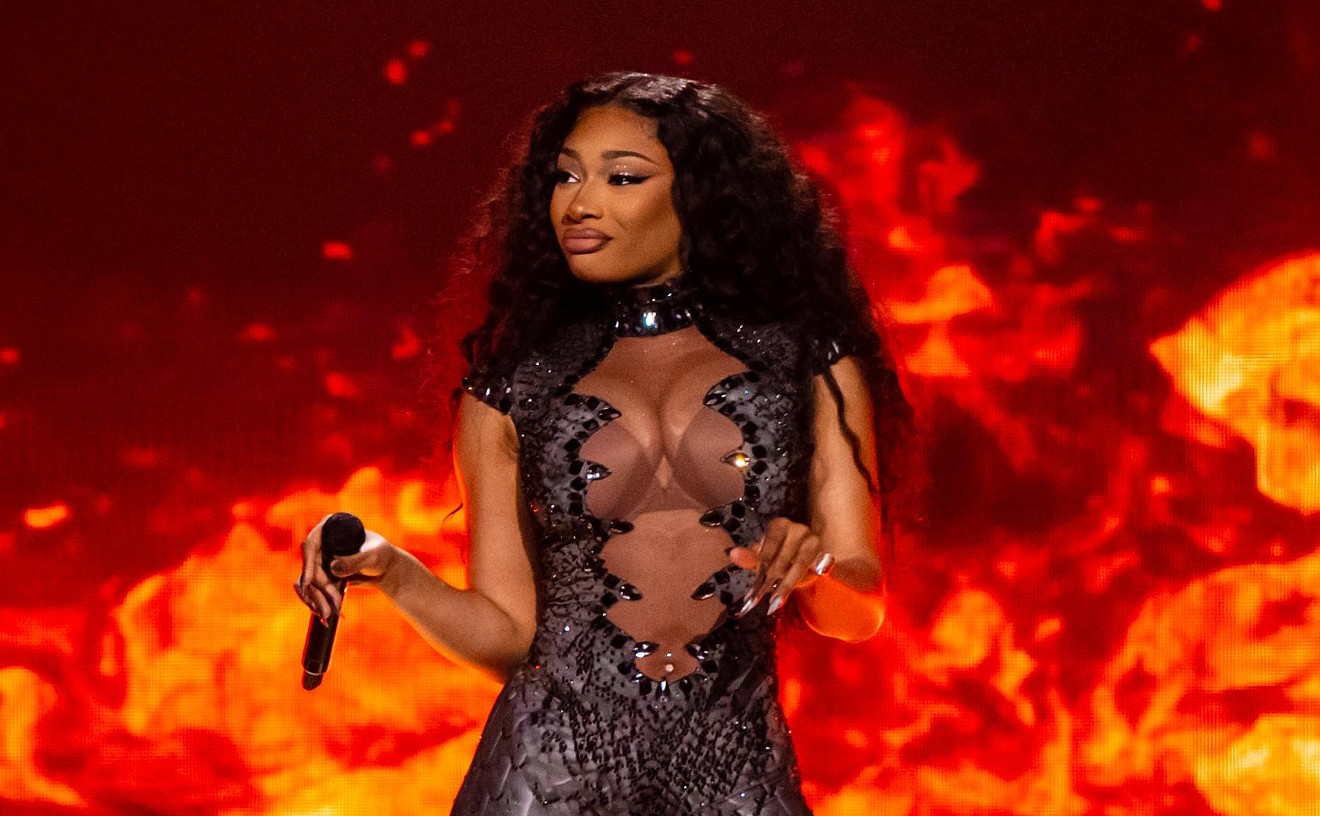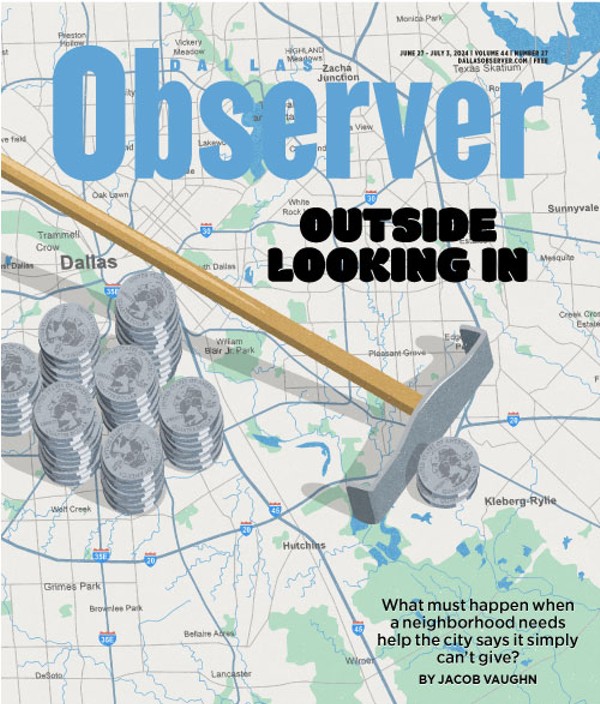Doni Blair, the bassist for the Toadies, started performing around Dallas in another band, Hagfish, with his brother Zach. The two would go down to Deep Ellum on the weekends to get away from the redneck rock of his hometown of Sherman.
"We would go to Deep Ellum and look at all the stuff and say we belong here," Blair says. "We wanted to be where all the excitement was."
Poppy Xander of the Helium Queens says she was in her early teens when a friend's mom brought them to the neighborhood for some kind of faith-based show. For Xander, that made Deep Ellum feel like a place where every kind of music could belong.
"It was definitely an all-ages thing," Xander says. "She dropped us off there and it had like frozen pizzas and shit you could buy and there was live music playing with a rec room. It was like a rec center, but in Deep Ellum. I remember driving down there, her mom cussing everyone out with the windows down. It was nuts. I always tried to be there as much as possible after that."
Funk rocker and DJ Ducado VeGA has become so synonymous with Deep Ellum that he was recently chosen as one of 10 winners of the Deep Ellum 100. The project awarded Deep Ellum artists with small grants and a spot on The Sound of Deep Ellum, a second volume of sorts following an 1987 release of the same name placarding the neighborhood's varied musical output.
VeGA says his first experience in the historic cultural hub took him to the Galaxy Club, where he served as the hype man for Joe “Big Spook” Martinez.
"It was an amazing experience because Deep Ellum has such a rich history, and I heard a lot of people talking about doing shows down there," VeGA says. "My experience was amazing, and I was honored just to be part of something down there. It was a lot of fun, and I was looking forward to really doing some other things musically down there."
This year marks Deep Ellum's 150th anniversary, a milestone being recognized and celebrated by the city of Dallas and groups such as the nonprofit Deep Ellum Foundation. In the past five years alone, the neighborhood has endured urban upheaval and rampant gentrification, but Deep Ellum's sesquicentennial celebrates its role beyond being a live music destination.
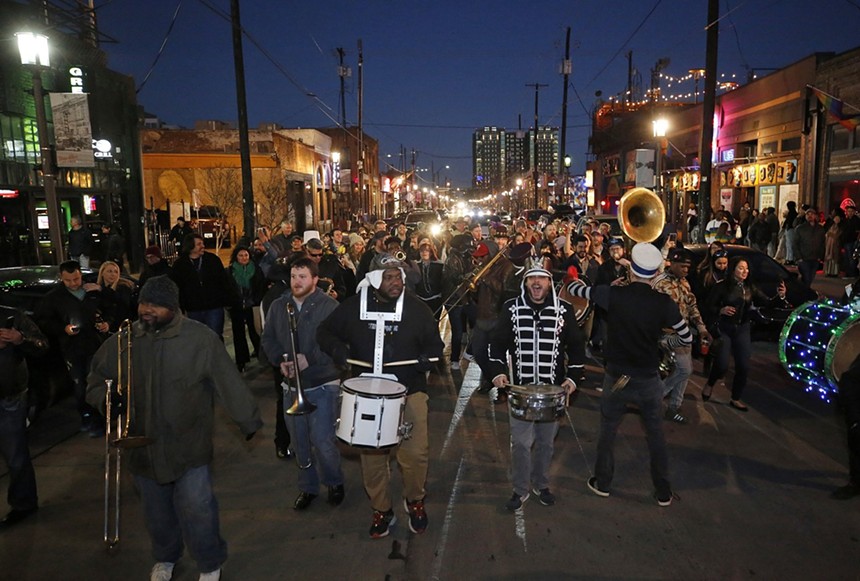
Deep Ellum has always been a place of music. A throng of musicians and revelers celebrate a recent Mardi Gras in Deep Ellum.
Mike Brooks
"It's a community and place where creatives have come for over 100 years to take risks and make their own space," says Stephanie Hudiberg, the executive director of the Deep Ellum Foundation. "I get so many people who just want to be part of the neighborhood because they feel like they can be themselves."
Unlike other music hotspots in major cities, Deep Ellum isn't confined to one style or flavor when it comes to art, music and culture. It's a collage of tastes, faces and people that conjures the sound of hip-hop, blues, jazz, punk-rock and every type of genre in between.
"It's kind of like some places have the local coffee shop or local bar but there's a whole neighborhood here and on any given day or moment, you'll see someone you know or hear music playing," Xander says. "When I hear from people who moved to other places, that isn't necessarily embedded in the fabric of a town or a city."
The exact date of Deep Ellum's founding isn't known, though it's widely accepted that it was established in 1873. Many facts about Deep Ellum's history remain a mystery, and few people know that better than Alan Govenar, the president of Documentary Arts. He has researched and chronicled the neighborhood's history in numerous films and books including Deep Ellum: The Other Side of Dallas and Deep Ellum and Central Track: Where the Black and White Worlds of Dallas Converged, which he wrote with journalist Jay Brakefield.
Govenar says Deep Ellum's story starts with the roads that led there, starting in 1872 when the first railroad came through Dallas with the Houston and Texas Central lines. These rails provided an access to the city that fueled Deep Ellum's expansion with a steady stream of people for years to come. The city of Dallas still lived under the long shadow of systemic segregation, but Deep Ellum would become "the most vibrant melting pot of people and culture, business and music anywhere in Dallas," Govenar says.
"Dallas became a magnet for people looking for opportunities," Govenar adds. "There were saloons and places that people played music. If you were a blues singer, you played on the street. Maybe you'd get invited into a café if you were lucky."
Bluesman Blind Lemon Jefferson performed on Deep Ellum's street corners throughout the 1920s. Paramount Records talent scout Sammy Price discovered his inventive American folk and blues sounds and took Jefferson off the street corner and introduced him to countless music fans, thus shaping the future of popular music for decades. His Chicago recording sessions produced timeless songs such as "That Black Snake Moan" and "Black Horse Blues."
Jefferson's talent and fame turned Deep Ellum into an incubator for the music industry for decades. Early Western swing and country music bands flocked to the neighborhood to build an audience and cut records to build a national audience. Downtown's 508 Park building became a makeshift studio for new and national talent such as legendary blues guitarist Robert Johnson, who cut recordings there in 1937, before his passing the following year.
"[Jefferson] was definitively the most successful, down-home country-blues singer of his generation and was profoundly influential to the growth of American pop music," Govenar says. "Blind Lemon only played on street corners when he was in Dallas even when he was successful."
The neighborhood's fame as a hub for music ebbed and followed over the years. Pat Bywaters, grandson of Jerry Bywaters of the artist collective Dallas Nine, spearheaded the reconstruction of 508 Park. He's been going to Deep Ellum for the last 40 years.
"You might've heard George Gimarc's Rock and Roll Alternative show on [defunct radio station] The Zoo about shows that such-and-such will be at Club Dada," Bywaters says. "A lot of the clubs had mailing lists. I remember getting postcards from the Theatre Gallery or people would put up flyers on telephone poles and you could see who was coming."
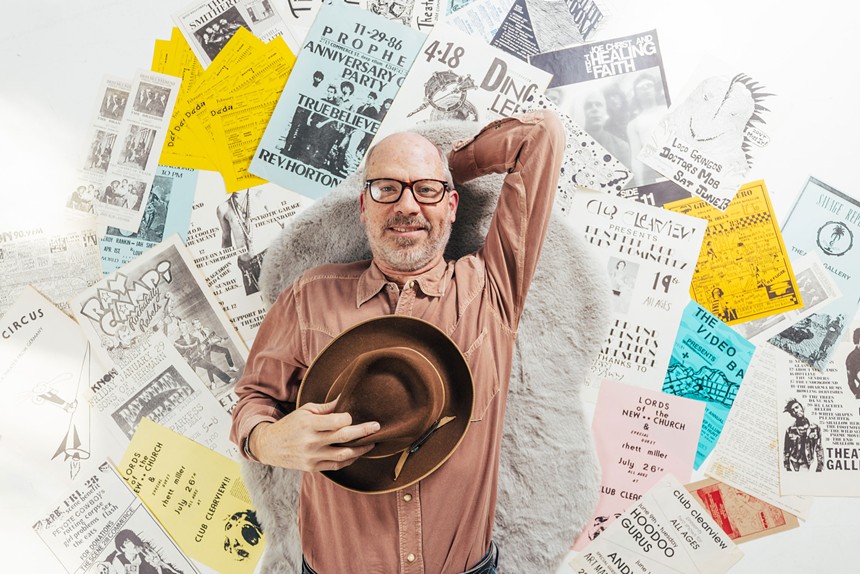
Pat Bywaters has collected event posters and flyers from Deep Ellum for more than 40 years.
Kathy Tran
"The neighborhood was really pretty quiet," Bywaters says. "It was a quasi-industrial area. The pawn shops were gone, so it was pretty light industrial. You just had these couple of venues that opened up in these industrial warehouses. They didn't have seats. They'd set up a bar in the back and a sound system and all of a sudden you had a club."
The Deep Ellum scene is an anomaly of music culture because the venues and acts that played and still play there never adopted a uniform sound or style.
"It was just a really fruitful time for all the bands," says Blair. "The reason I think it carried on like a scene is no one really sounded like each other. There's a Seattle scene or a Detroit sound. We didn't have that. We had Reverend Horton Heat or Tripping Daisies or us. We inspired each other and would play gigs with each other. I didn't really remember a rivalry with each other. It was all really friendly."
Change is inevitable for any neighborhood, and Deep Ellum is still expanding and changing its identity as storied venues such as Wits End, Curtain Club and Lizard Lounge close and new high-rise apartments, restaurants and shops pop up.
Most recently, The Green Room on Elm Street, which served as a hotspot for music fans and a nightlife staple for the after-work crowd, closed its doors for the second time, just after getting its footing back from the coronavirus shutdown.
"That was our watering hole," says Bruce Sweedberg, a bartender at the Neon Kitten and Blackbird Society speakeasy. "When Wits closed, it took a toll on everyone in the neighborhood. The Green Room was the same. It was one of our hideaways."
The changes have also brought increasing crowds to Deep Ellum, and with them, a potential for public safety problems. Crime has ebbed and flowed in the neighborhood throughout the decades.
"We're starting to see a lot more people come out here, especially with the addition of more police forces trying to root out the stuff that's going on," says bartender Steven Enriquez, who started at the now-closed Anvil Pub and moved to Neon Kitten. "When I first started working out here, it was pretty bad. Every two or three days, there would be a big fight or pulling out a gun or a shooting. In these two years, it's dropped a lot to the point where up until last week, we hadn't heard or seen anything happen in the last two months."
Kristin Lowman, the assistant director of media relations for the Dallas Police Department, says officers have continued to work on maintaining high visibility with squad cars and uniformed officers, mounted patrol units and a specialized squad of seven officers permanently assigned to the area and overseen by a superior.
"Large crowds in any dense area provide challenges," Lowman says. "The use of cameras for surveillance and oversight have helped us to maintain crowd control and prevent and solve crimes in Deep Ellum and across the city."
Scott Beggs, the owner of Three Links, has become frustrated with the recent public safety efforts.
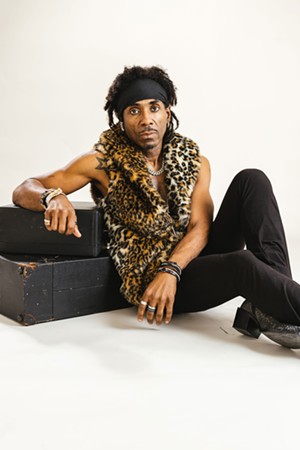
Funk-rocker Ducado VeGA says his inclusion in Deep Ellum 100’s live show in honor of the neighborhood’s 150th anniversary celebration showed him how much he missed being on stage.
Kathy Tran
Places like Three Links still have plenty of public support, but Beggs says there's a noticeable drop in morale from where he sits on Elm Street.
"If we'd known what we were going to step into when we re-signed [the lease], I never would've done it," Beggs says. "I had a lot of hope coming out of the pandemic and 2021 with the different variant waves slowing things down and some canceled tours. It was a challenge, and we had hope and enthusiasm in 2022, and just to get blindsided by 'We're gonna shut down the streets' and enforcement on clubs, it made it not fun. It's definitely the least fun in the last 10 years we've been in business."
The key to any kind of community improvement is creating a sense of support. Ducado VeGA hopes it'll stick around for another 150 years.
"The way we keep it together is we've got to stand together as an arts community," VeGA says. "More bands have to start being like relatives. We've gotta come together and do diverse shows where we have different crowds and not have one type of show or genre. Let's bring those communities and get those people to bond together as far as art and music, because if we don't my fear is the Deep Ellum we still have left and know will be gone."
Whether it's through soul or noise music, street art or the fine works displayed at Kettle Art, the neighborhood's artistic spirit won't be stifled no matter which forces push it toward gentrified or unruly.
"I'm almost thinking it's heading in that direction," VeGA says of the idea that Deep Ellum as a creative cauldron will be lost. "I don't want to say and I don't want to be negative, but if we don't stand together as a musical and creative community, that machine will thrive and consume everything in its path."
But as its long history has taught us, Deep Ellum's popularity, reputation and artistic production will continue to swing like a great jazz rhythm.

